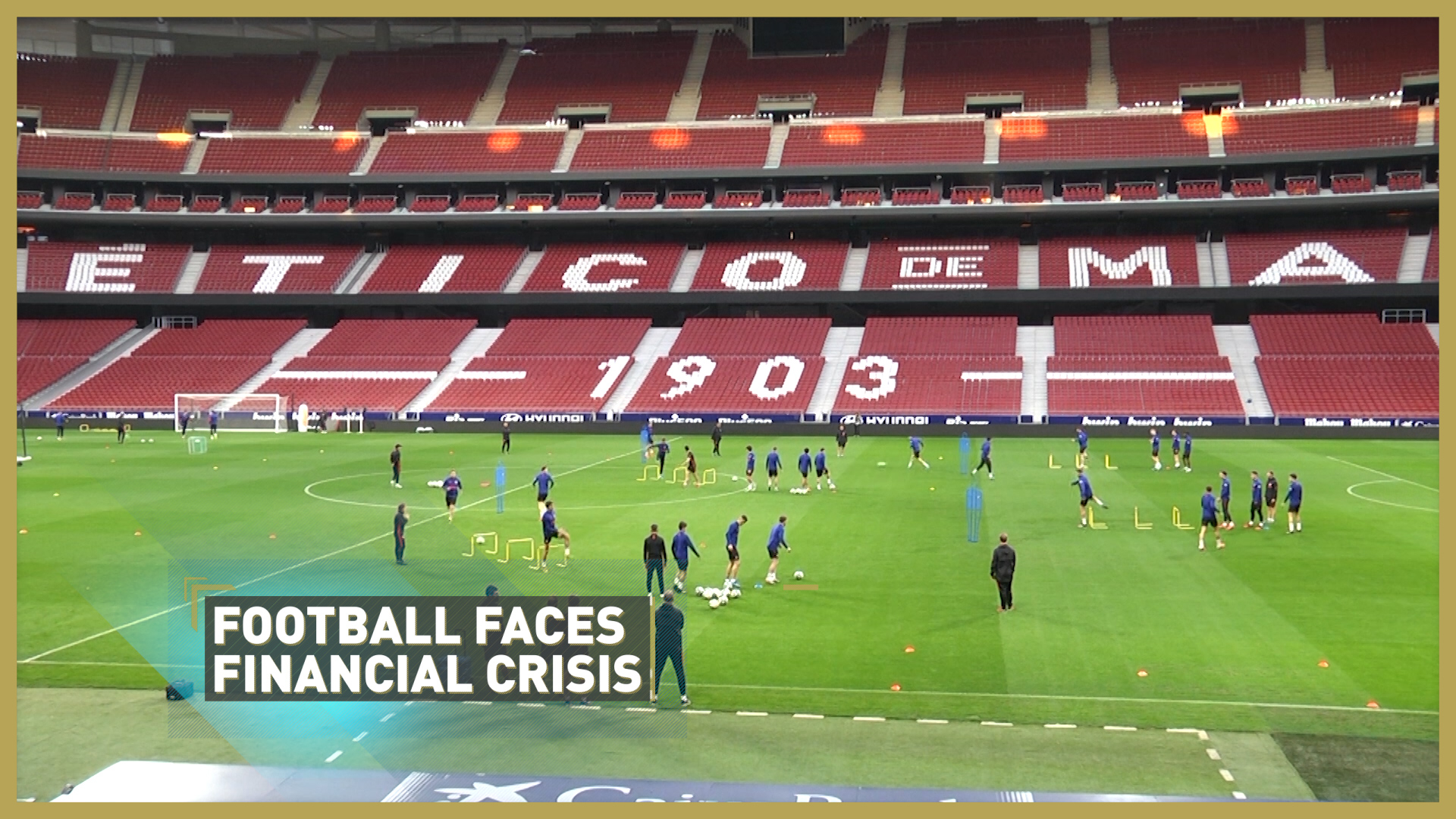02:22

It was just nine months ago when 100,000 Liverpool fans descended on Madrid to watch their team win the UEFA Champions League for the sixth time.
However, with the spread of coronavirus in Europe, it's looking increasingly likely that those scenes won't be repeated again this season by any football fans.
The Champions League and Europa League were suspended last week following the escalation of the virus on the continent. It came hot on the heels of several domestic leagues which had enforced a season hiatus.

Scenes like Liverpool winning the Champions League in Madrid nine months ago, seem like a distant memory right now. /AP
Scenes like Liverpool winning the Champions League in Madrid nine months ago, seem like a distant memory right now. /AP
Recent estimates put the potential revenue loss to Europe's top five leagues at as much as $4.3 billion this season.
European football's governing body, UEFA, says it is committed to try to finish all league programs by the end of June, but this will be reviewed if there is not significant progress made with the virus.
High-profile events cancelled
As the crisis progresses, many experts believe that league football will now be suspended indefinitely.
Officially, Spanish football's La Liga will resume on 4 April. However, sporting authorities seem to have been waiting for the government to announce a widely expected extension to the state of emergency, which they did on Sunday morning. It is now thought the league will follow Italy's Serie A in giving no set return date.
The English Premier League has announced a suspension until at least 30 April, while stating a determination that the season will not be abandoned as it endeavors to finish the remainder of the campaign.

Lionel Messi and his Barcelona teammates are officially due to return to playing football in La Liga on 4 April but this looks increasingly unlikely. /AP
Lionel Messi and his Barcelona teammates are officially due to return to playing football in La Liga on 4 April but this looks increasingly unlikely. /AP
On Wednesday, the German Football Association president Fritz Keller highlighted the danger to clubs further down the sport's pyramid than the Bundesliga, the country's top division.
"What's important is to keep the structure of 25,000 clubs and seven million members, from the district to the regional league up to the Bundesliga," he said. "Let's not forget that 250,000 people work here full-time."
When will football return?
UEFA has also postponed Euro 2020, its national team competition, for a year. The decision has left space in the sports calendar over the summer to allow leagues to finish their remaining games – ideally before the next season kicks back in, around August and September.
Those delayed fixtures will almost certainly be played behind closed doors. If leagues cannot complete their respective seasons in some way or other, the ramifications could be huge – and the later the catch-up starts, the worse the fixture pile-up may become. In Spain, the top-division teams have 11 games left to play; in Germany and England it's nine; in France it's 10; in Italy 12, and so on.
"We have to be realistic and it's not realistic to think that we are going to have football before mid-May," says Fernando Kallas, a reporter for Spanish daily sports newspaper Diario AS. "So we think that, being honest, six weeks, seven weeks of football, I think we're going to have games every two or three days, or four games every 10 days."
As the stadiums fall silent, clubs such as Real Madrid and the other giants of European football will hope the virus subsides in time for those crucial matches to be played.
Sign up for free daily updates on the COVID-19 outbreak by scanning the QR code below
